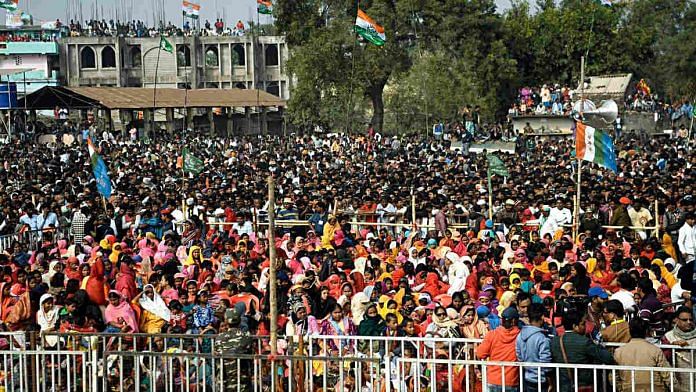The Indian election season is nothing less than a festival, with people from all corners of the country coming out to vote enthusiastically.
Every voter has an opinion on the country’s politics and electoral options, no matter their educational background, which should be evidence of the grassroots level of democracy in India. However, the pandemic and the government’s response to it has brought up new questions about electoral literacy in the average Indian.
The Narendra Modi government’s ignorance towards the pandemic, whether it was in terms of medical facilities or the vaccine rollout, was undoubtedly a failure and caused several avoidable deaths.
This rightfully triggered a debate and criticism on the government’s priorities. When India was at the peak of the second wave of Covid-19, witnessing a meltdown of the healthcare system, our foreign minister was conveying messages to Indian diplomats to “counter the one-sided narrative against the government”.
The government’s handling of the pandemic will unquestionably have repercussions on the BJP in the upcoming state and Lok Sabha elections, for which the government will obviously focus on building its image in front of the electorate and mobilising massive campaigns to acquire power.
But is there any space for basic governance in this political chaos of power play?
Your friendly neighbourhood representative
In the Lok Sabha elections, a common Indian votes for the prime minister. In the state assembly elections, a common Indian votes for the chief minister. But this may have unwanted consequences at the local level.
BJP MP Sakshi Maharaj, representing the constituency Unnao in Uttar Pradesh, has four criminal cases registered against him.
According to an analytical report by the Association of Democratic Reforms, as many as 233 out of the 539 winning MPs have a criminal record, yet they are in power. The main reason for this is neither lack of knowledge nor them having more power over the local electorate.
It’s because people vote for the party to see the leader they want as PM or CM, but barely anyone knows who the representative from their constituency is.
This is one of the reasons why seeing changes at the local level is so difficult. There is simply no engagement between the local leader and their voters. If your concerns are not put forward by the leader, who you unknowingly elected to the Parliament, you should not expect them to be addressed.
Emotions lead the way
The Indian electorate is emotional and sensitive, which is exactly what makes it gullible. For a public that saw numerous scams and a weakened economic growth in the later years of the Manmohan Singh-era, Modi came as a messiah, who would make India a global superpower.
Add to that his charismatic personality and effective oratory skills, Modi was destined to become the leader that India wanted. No one asked for a plan of action or the changes that will be brought about by the government but hearing such hopeful words made us optimistic and brought us a sense of relief that a bright future is ensured.
2021 tells us that the words were too vague and far-fetched. If Modi 2.0’s misplaced governance continues for the rest of the term and Rahul Gandhi also makes a vague statement such as India will become a $10 trillion economy by 2030 under Congress, it will not be surprising to me if people accept his statements.
Ideally, it is the duty of the media to ensure that it questions the country’s political scenario and perhaps puts forth the truth of false hope and optimism, but much of the mass media today is not of help here.
For the greater good
Electoral literacy goes way beyond just issues based on who one should ideally vote for.
Identifying education, healthcare, infrastructure, social harmony and other sectors as topics that should be central to elections is also just a part of it.
None of your issues matter if you don’t know the electoral process and end up voting unknowingly for someone who barely has any public presence but is still a Member of Parliament.
It is needless to say that the Election Commission of India needs to take stringent steps to purify electoral politics, but it is also our duty as voters to know and strengthen the democracy that we take pride in.
Question your leaders, compel them to engage with and address the public and their concerns, evaluate your electoral choices independently before casting your precious vote, reject media biases and establish a strong electorate.
Electoral literacy is a necessity if the common man wishes to reinforce federal democracy and actually see political changes that change the country for the better.
Aadit Malhotra is a student of Delhi Public School, Gautam Buddh Nagar, Noida



